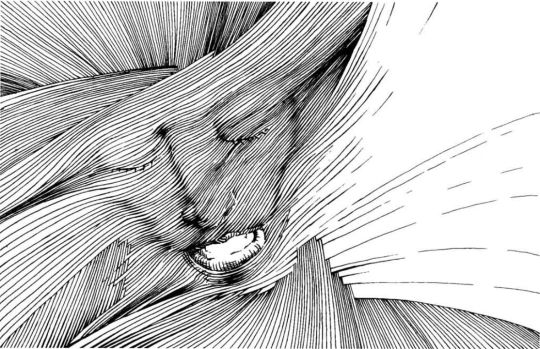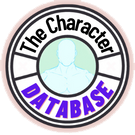I AM THAT I AM: Difference between revisions
(Created page with "<tabber> |-|The Celestial Chorus= alt=IATAMWOD|left|350px |-|The Goddess= alt=GDESSIATAMWOD|left|540px |-|The Godhead= alt=GHEADIATAMWOD|left|240px </tabber>The Darkness before light —The Absolute is the Primordial Void who bring to life all the things. The divine essence of the Absolute aka Prime —the I AM THAT I AM being the first cause and the first emanation of the Void who...") |
m (Protected "I AM THAT I AM" ([Edit=Allow only administrators] (indefinite) [Move=Allow only administrators] (indefinite))) |
(No difference)
| |
Latest revision as of 07:53, 12 January 2025
The Darkness before light —The Absolute is the Primordial Void who bring to life all the things. The divine essence of the Absolute aka Prime —the I AM THAT I AM being the first cause and the first emanation of the Void who fragmented itself and gave birth to all the Godheads along with their respective traditions within the Tapestry.
The Absolute manifesting the essence of Prime gave form and life to the entire fabric broking apart into reality also known as the Quintessence, giving forms to worlds and gods —The Godheads. The Pure Ones in its purest state found themselves in a state of Unity within Prime, where the truth beyond reason and mind becomes one with all.
Mortals often associate God with the monotheistic deity depicted in various religions. In the Abrahamic traditions, this deity is known as Yahweh, Elohim, Jehovah, or Allah. In China, God is identified as the "August Personage of Jade." Despite these cultural distinctions, the concept of God transcends singular definitions, encompassing multiple identities and purposes worldwide.
God is considered the first and eternal being, uncreated and existing before the universe. Known to the mages as the Prime, God is believed to have created the universe through divine will and power. Although scripture does not explicitly state God’s motivation for creation, it is often understood as an act of divine love and kindness. God is viewed as a supreme and transcendent force whose providence shapes all creation.
| Names | None applicable, although is called God, Goddess, The One, I AM THAT I AM, Essential Divinity, The Great Spirit |
| Gender | Inapplicable |
| Race | Inapplicable |
| Occupation | Creator |
| Origin | Vampire: The Masquerade (1st Edition) (1991) |
| Alignment | Neutral |
| Age | Inapplicable |
| Created By | Mark Rein-Hagen |
| Height | Inapplicable |
| Weight | Inapplicable |
Appearance
"I AM THAT I AM," often referred to as God or the Divine, is depicted in the World of Darkness franchise as an ineffable and transcendent being. Unlike other entities, God does not possess a fixed, corporeal form. Instead, manifestations of God are filtered through the perceptions and beliefs of those who experience Him. For some, God may appear as a radiant figure of light, an omnipotent voice, or a presence felt in the depths of the soul. The August Personage of Jade, for instance, embodies divine authority in Chinese contexts, reflecting a more culturally specific interpretation. These varied depictions highlight God’s incomprehensibility and the limitations of mortal understanding.
Personality
God’s personality in World of Darkness is as enigmatic and multifaceted as His appearances. While generally depicted as a being of ultimate love, creation, and order, He is also shown to be distant, wrathful, or even indifferent in certain mythologies. His motives remain inscrutable, as God rarely intervenes directly in the world.
To the Demons, God is a source of both awe and resentment, representing absolute authority and justice, yet also capable of great severity. The Messengers in Hunter: The Reckoning reflect a more compassionate aspect, acting as divine agents trying to mend the broken world. Conversely, the Kuei-jin and Yama Kings view God as unforgiving, reflecting their cursed and outcast status.
Ultimately, God’s personality is shaped by the perspectives of those who attempt to understand Him. For the mages of the Celestial Chorus, He is a source of unity and enlightenment. For the Wraiths, He is either a guiding light toward Transcendence or an elusive mystery lost in the Shadowlands. In all interpretations, God is a being of profound complexity, embodying both creation and judgment, connection and distance, and the ultimate unknowable truth.
Biography
Vampire: The Masquerade
In Vampire: The Masquerade, the story begins with Caine, cursed by God for murdering his brother Abel. This mythological narrative is deeply embedded in Cainite lore and predates Judaism in the beliefs of ancient vampires. The tale is further explored in Demon: The Fallen, where desert tribe myths provide a unique perspective on the divine narrative, though often from Lucifer’s biased viewpoint. Demons, having known God personally, experience a love/hate relationship represented by their Torment. Despite their intimate knowledge, they remain unaware of God’s current actions.
The Kuei-jin Perspective
The Kuei-jin, or Wan Kuei, attribute their suffering to divine abandonment. They believe the "August Personage of Jade" turned away from them, much as he did with the Yama Kings. Their experiences in the Yomi Hells affirm their belief in a god, but not a forgiving one.
Hunter: The Reckoning
In Hunter: The Reckoning, Hunters receive power from the Messengers, agents believed to act on God’s behalf. The game suggests that God has largely departed from the fallen world, leaving the Messengers to repair it. Whether this absence is permanent remains uncertain.
Werewolf: The Apocalypse
The Garou, accustomed to interacting with spirits, view God as an immensely powerful Celestine, though their theology centers on Gaia and the Triat. The Bastet creation myth includes Ahu, the creator of the Triat and, by extension, Gaia, positioning God as a peripheral figure in their cosmology.
Mage: The Ascension
Mages’ interpretations of God are diverse and deeply personal. The Celestial Chorus venerates "The One" as an ineffable entity central to Ascension. Others, such as the Order of Hermes, view godhood as a state to be attained through apotheosis. Pantheistic beliefs, such as those of the Chakravanti and Sahajiya mages, may align Hindu deities like Brahma, Vishnu, and Shiva with the Triat. Some Gnostic Mages theorize that human Avatars are fragments of a shattered God, with Mass Ascension serving as a means to reunify these "Godsparks."
Wraith: The Oblivion
Wraiths, thought by the living to be closest to God, exhibit a spectrum of beliefs. Many Heretics equate Transcendence with a connection to God, while others abandon faith entirely due to the harsh realities of the Shadowlands. The Ferrymen, enigmatic guides to the Far Shores, remain tight-lipped about their role in delivering souls to afterlives resembling Heaven, Hell, or Nirvana. Meanwhile, some wraiths turn to darker deities like Grandmother.
Demon: The Fallen
Demons’ attitudes toward God are complex. Having known Him personally before their fall, they harbor resentment and anguish. Upon escaping the Abyss during the Sixth Great Maelstrom, demons divided into factions based on their beliefs: Reconcilers seek forgiveness, Raveners desire annihilation, Cryptics pursue divine knowledge, while Faustians and Luciferans manipulate humanity’s Faith to oppose God.
This multifaceted portrayal of "I AM THAT I AM" in World of Darkness highlights the diversity of interpretations and conflicts surrounding the divine, reflecting the rich mythologies and existential questions of the franchise.
Powers and Statistics
Tier: 0
Powers and Abilities: Abstract Existence (Type 1), Acausality (Type 4), Nonexistent Physiology (Nature 2, Aspect 1, 2, 3, 4, and 5; The Essential Divinity is at the Core of Sacred Mysteries, the thing which is the ineffable essence of all other deities such as the Wyrm, Weaver and the Buddha ) Avatar Creation (All Godheads are simply attempts to give personality, name or identity to the Essential Divinity), Beyond-Dimensional Existence (Type 2), Cosmic Awareness, Creation, Immortality (Type 1, 2, 5 and 9), Transduality (Type 3), Conceptual Manipulation (Type 1: All Gods and Divine beings may manifest Quintessence which is the sea of infinite energy[1] that fuels the latticework of all Creation,[2] existing as "the archetype of all things"[3] and a "perfected model of reality"[4] from which everything in the Tellurian originates, and to which it will eventually return,[5] with even the element of Spirit, which comprises the whole of the Umbra,[6] being simply a reduced form of it)[7], the abilities of all other Godheads Ontologically Transcendent Physiology, Metaphysics Manipulation (Type 3) Large Size (Type 11)
Attack Potency: Apeiron (All mage factions speak of a singular absolute with varying interpretations; the Unmoved Mover a complete, perfect and unchanging entity, The Ein Sof the infinity, the one that is all, the unity, the absolute, The Absolute, said to encompass every fleeting manifestation of itself. The Void is the absolute, beyond it, one can go no further. The void swallows all, those who achieve this state cease to exist as anything a human mind can comprehend, ascension leads one into the paradox of being both human and divine, reaching the absolute; one transcends definitions and simply "IS" and nothing more. It is beyond human conception, where all things are one in the dark, where all distinctions collapse into nothingness)
Speed: Omnipresent
Lifting Strength: Immeasurable
Striking Strength: Inapplicable
Durability: Inapplicable
Stamina: Inapplicable
Range: Virtually Limitless
Standard Equipment: None Notable
Intelligence: Omniscient
Weaknesses: None-notable



